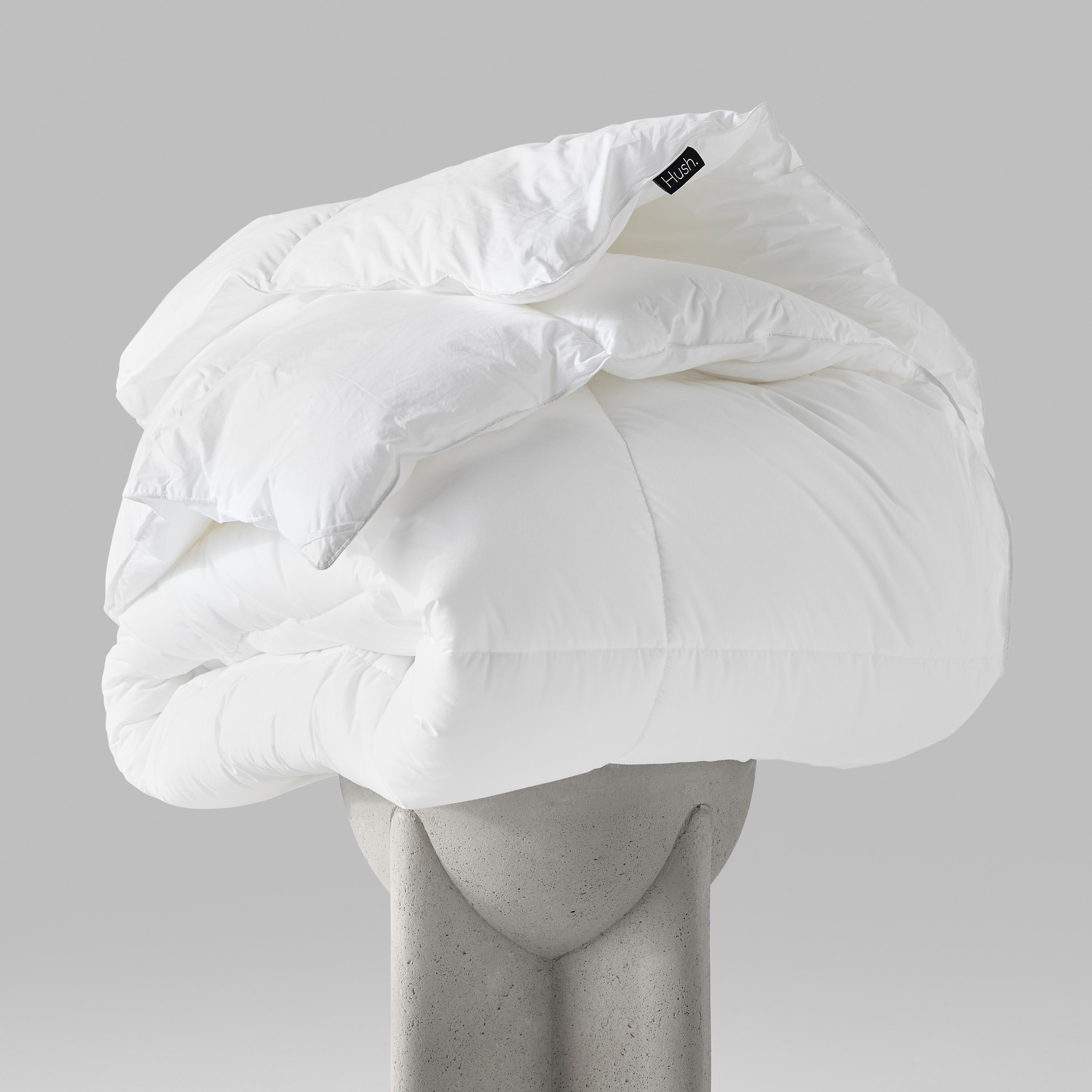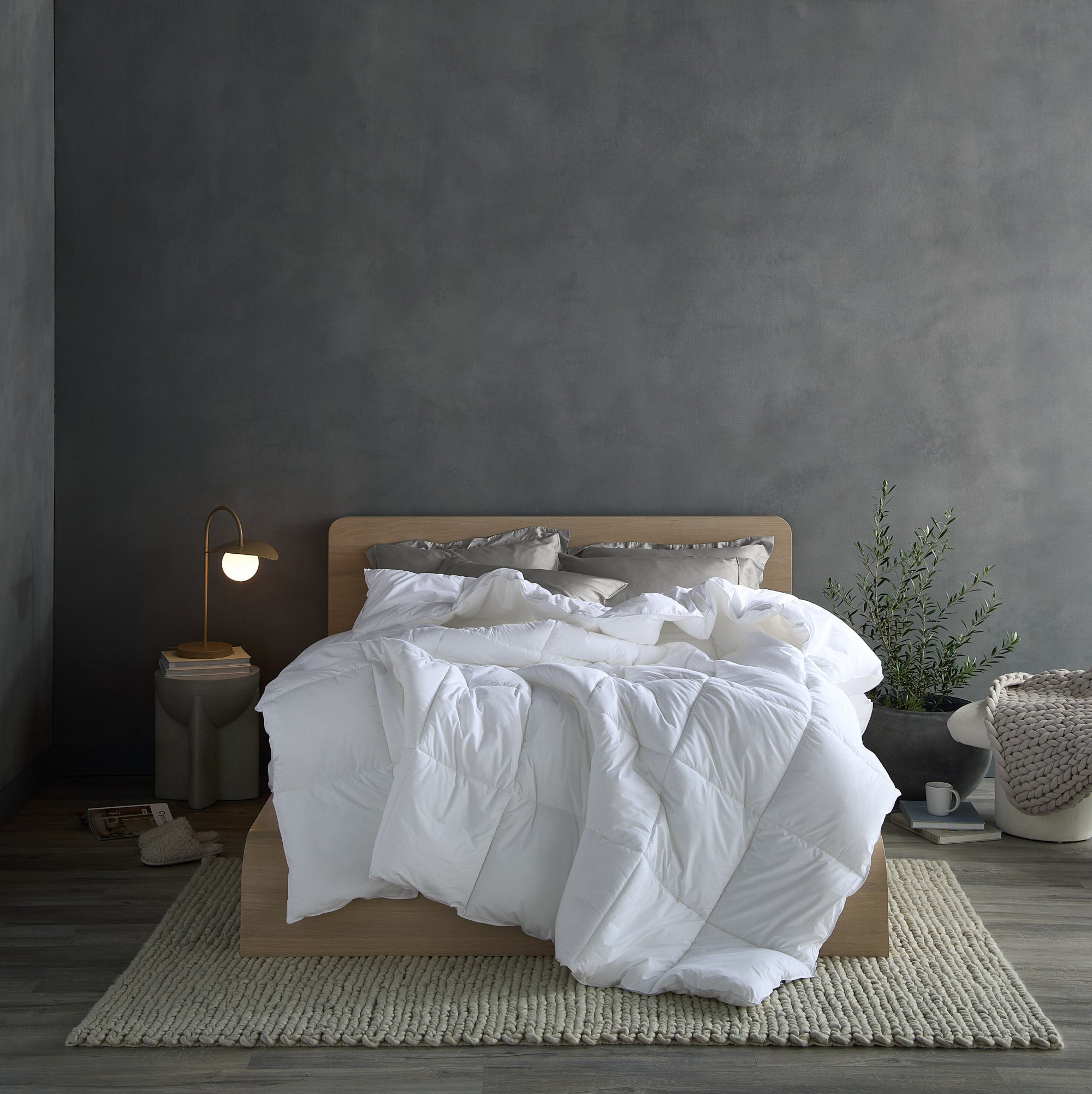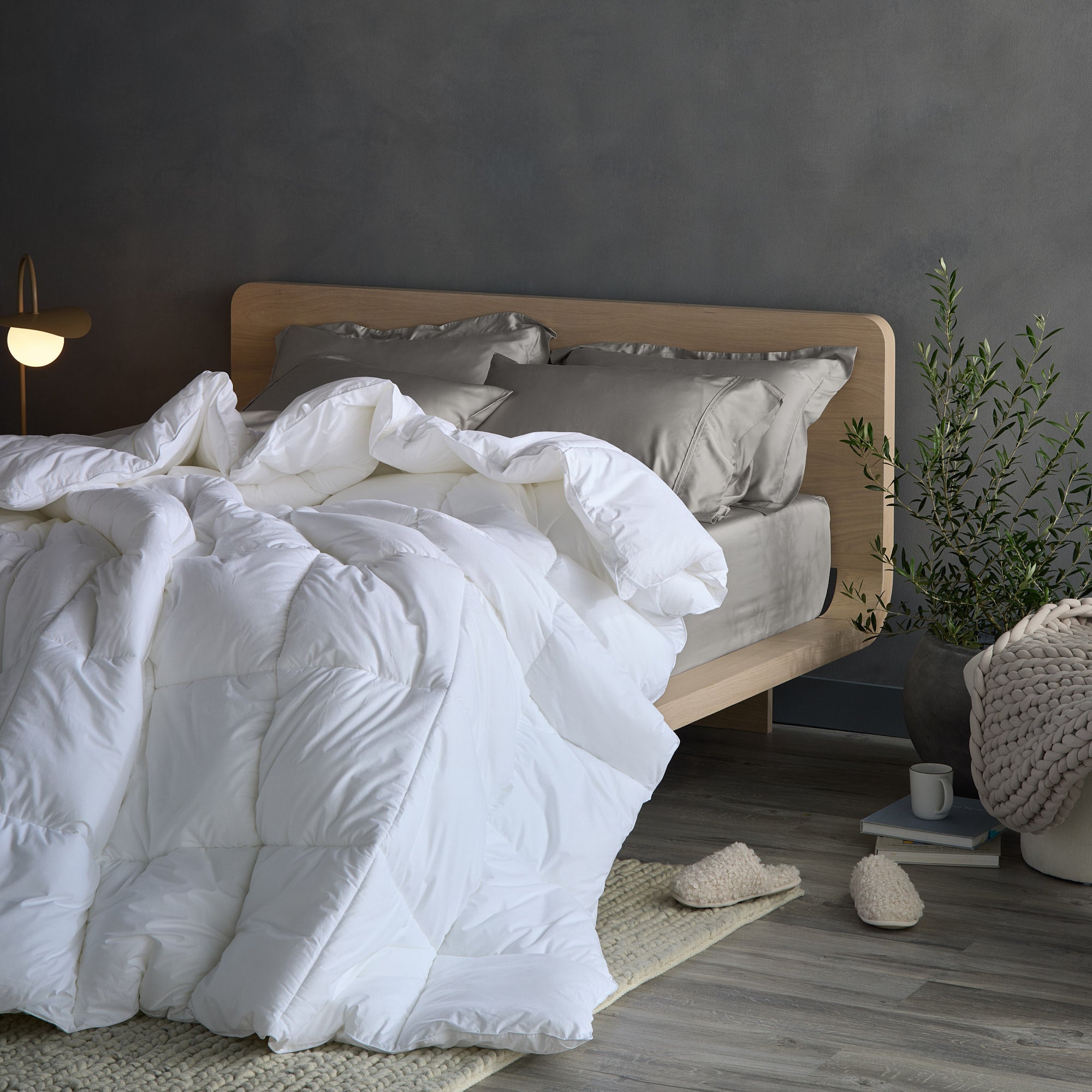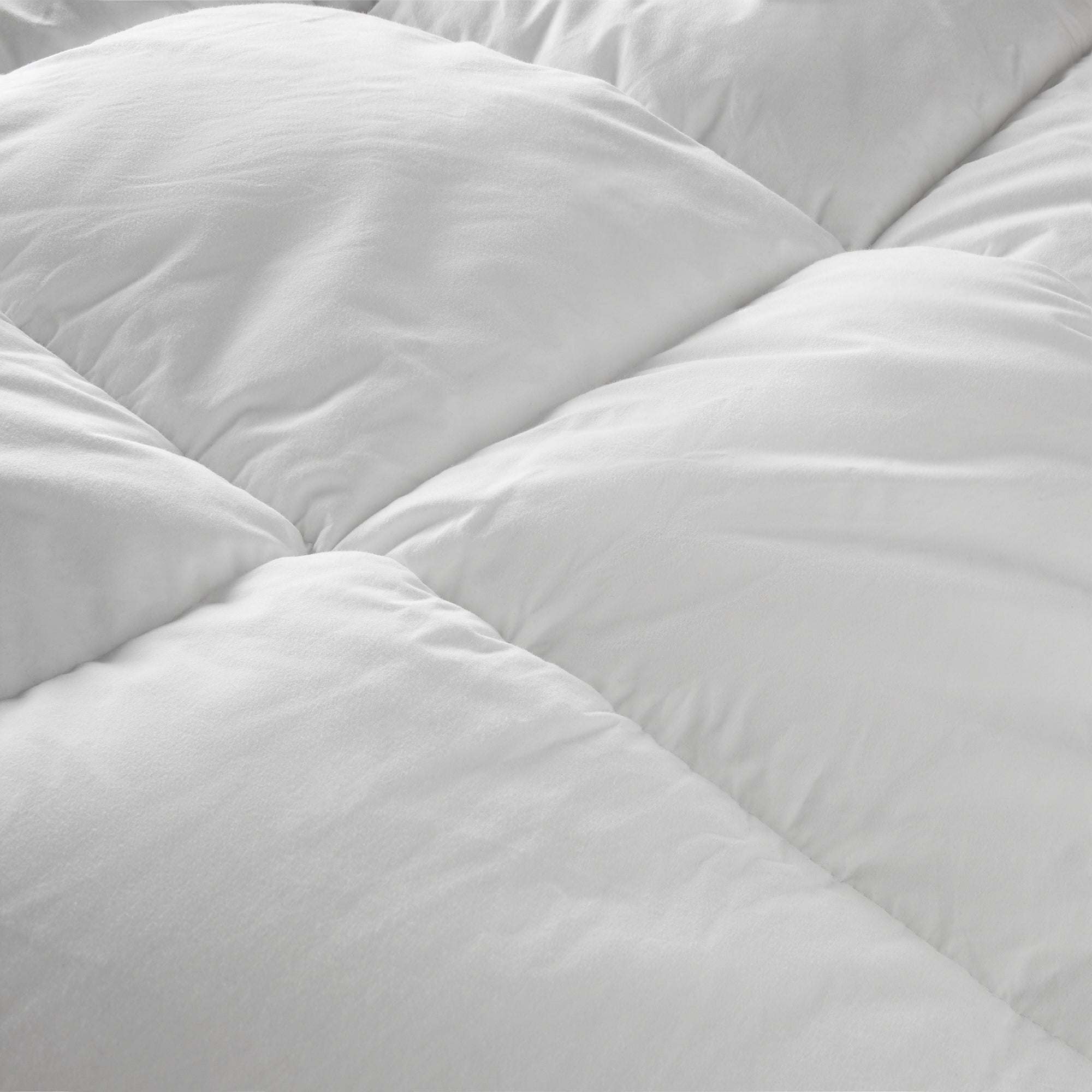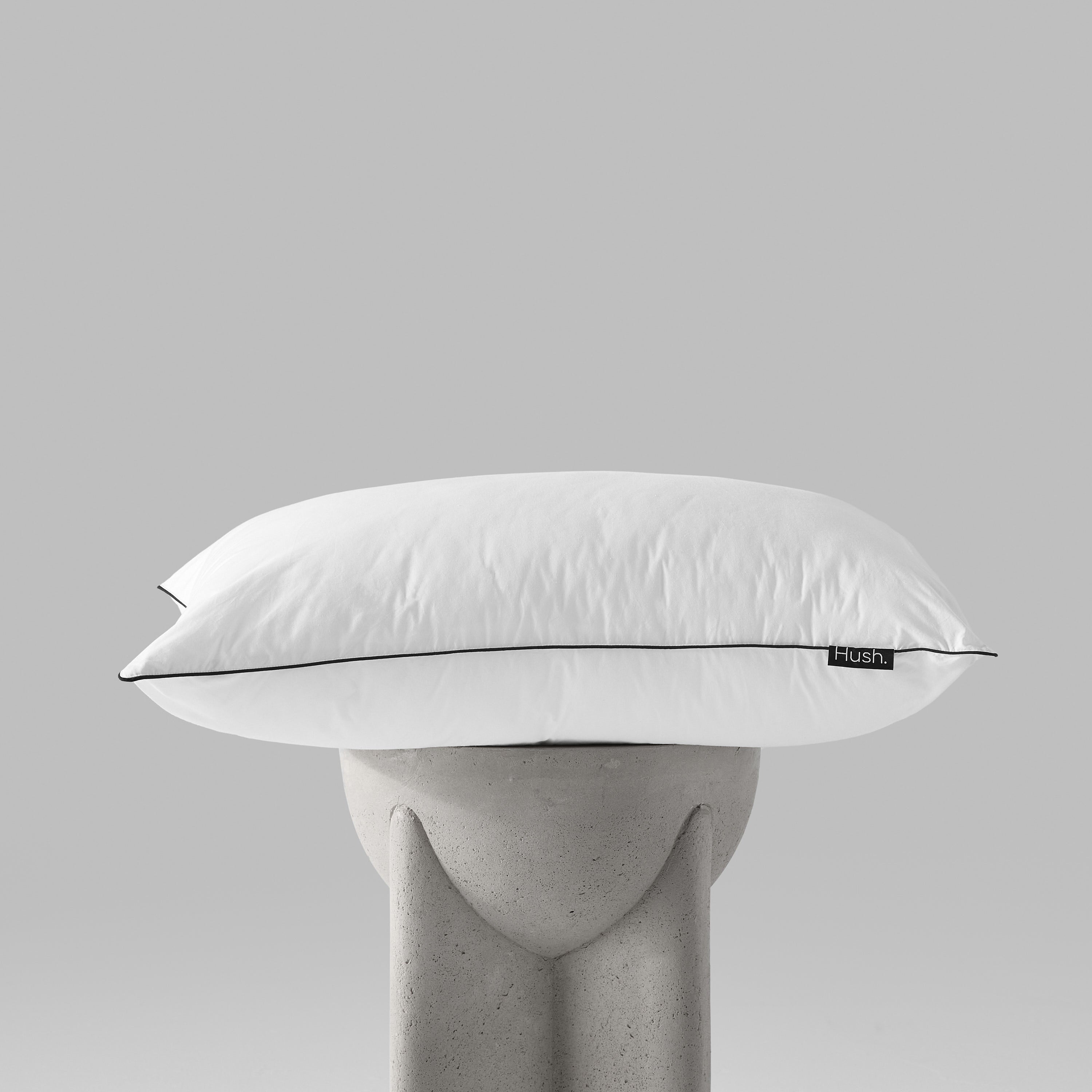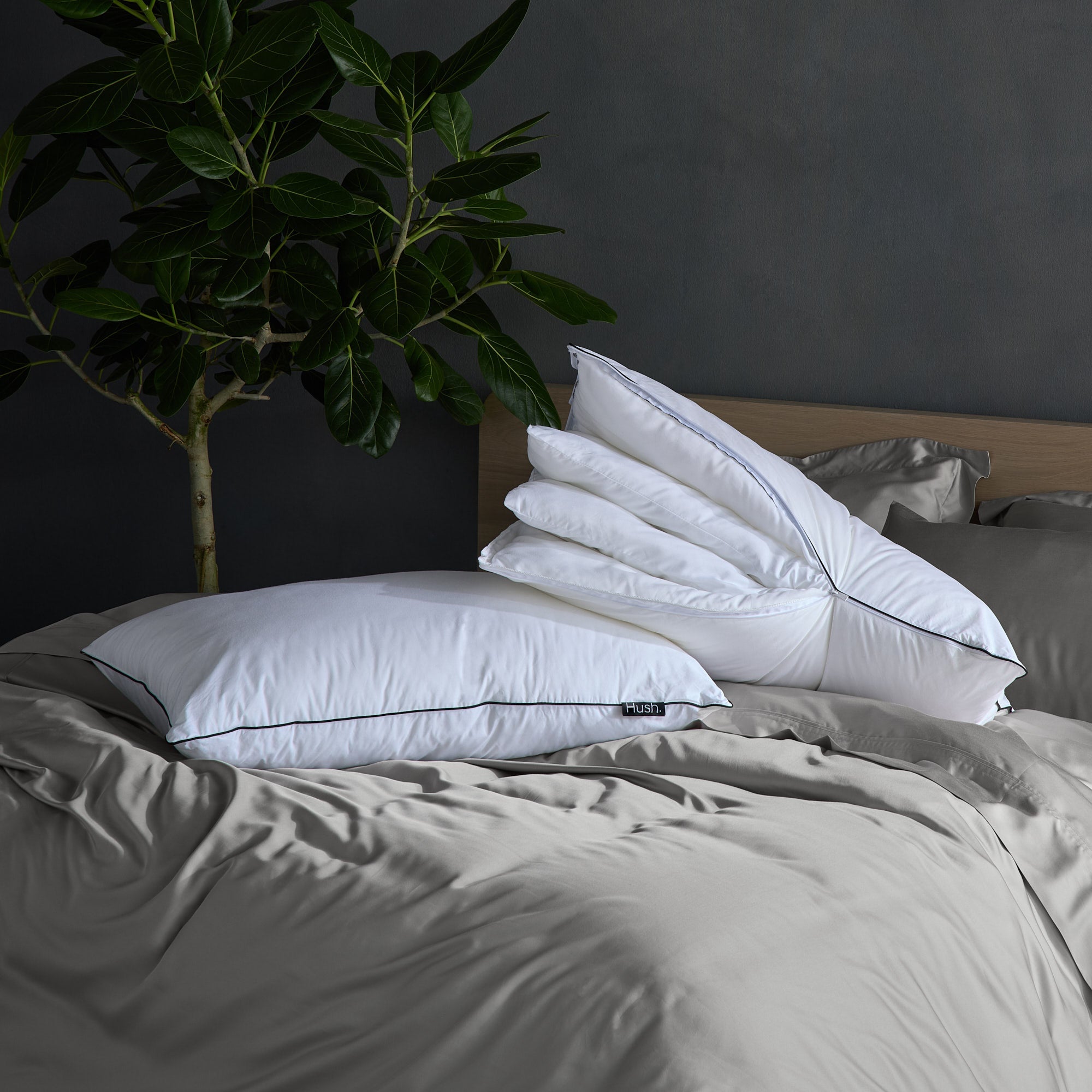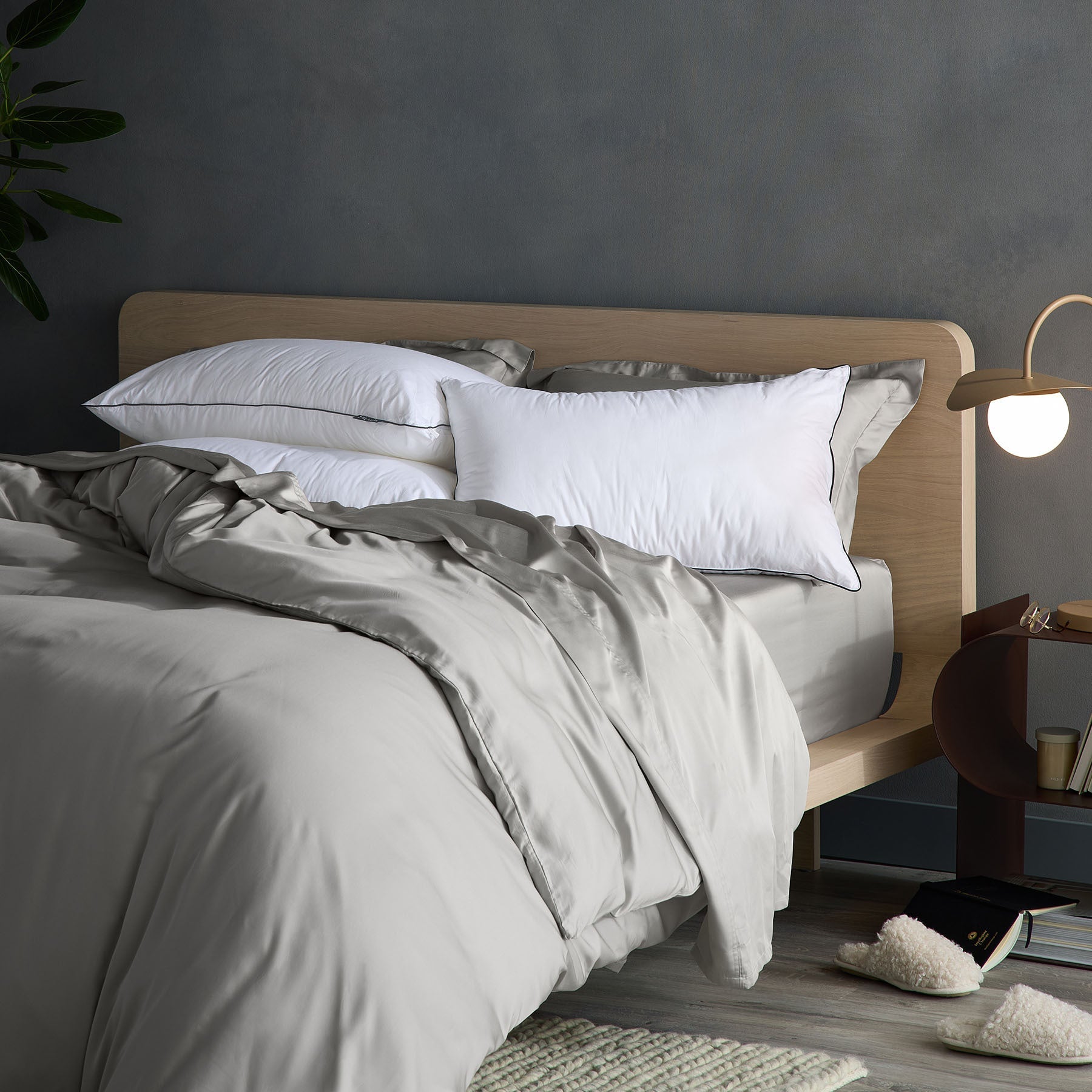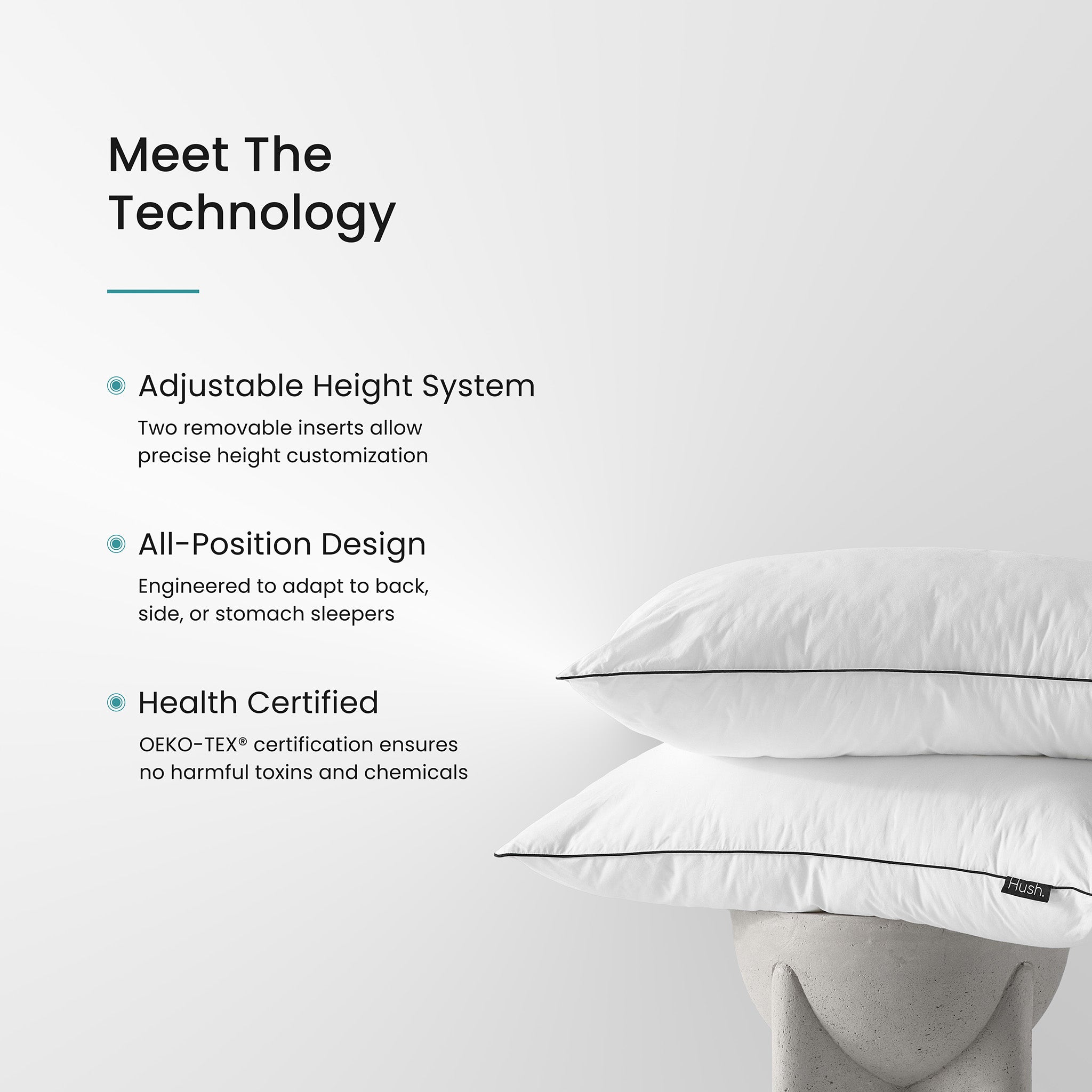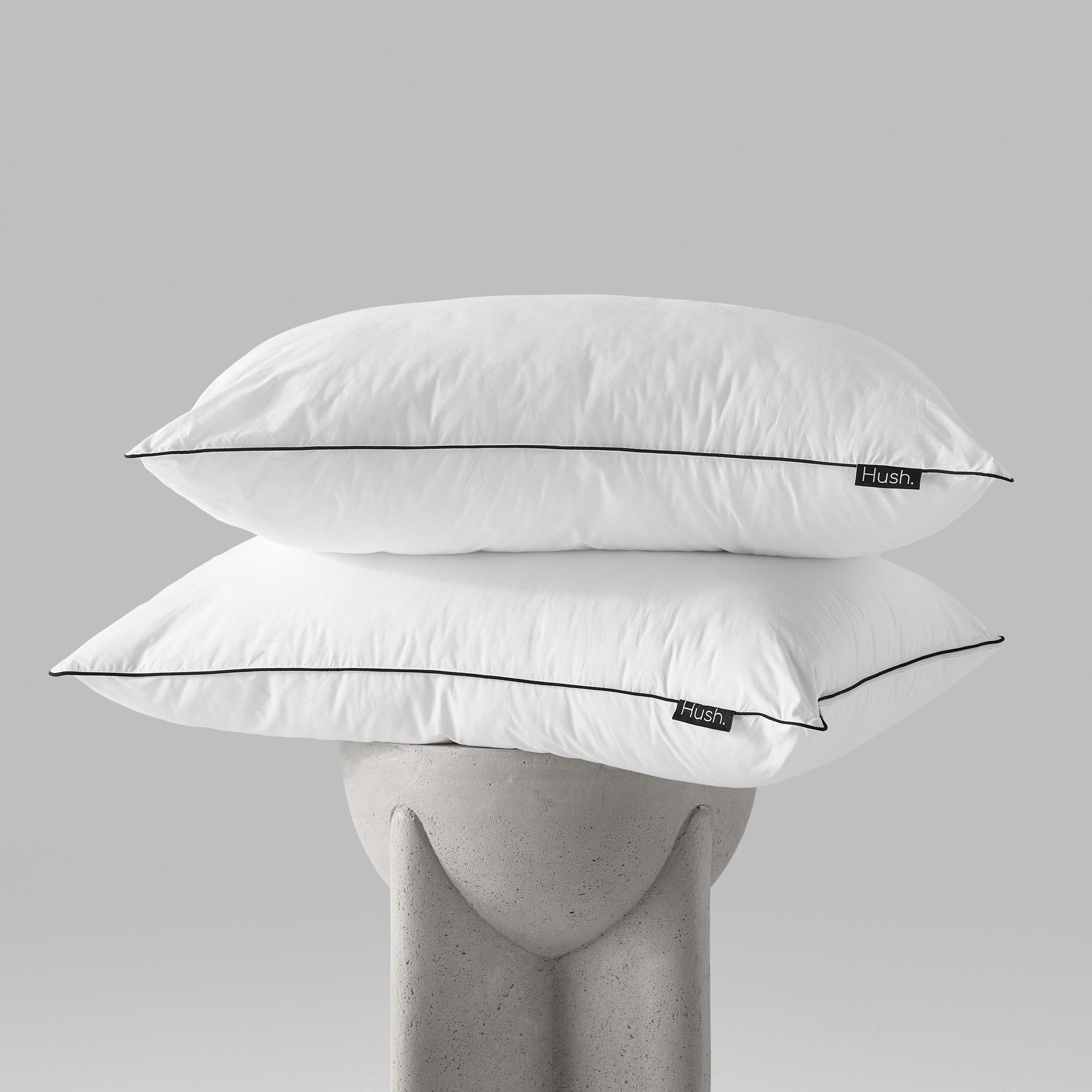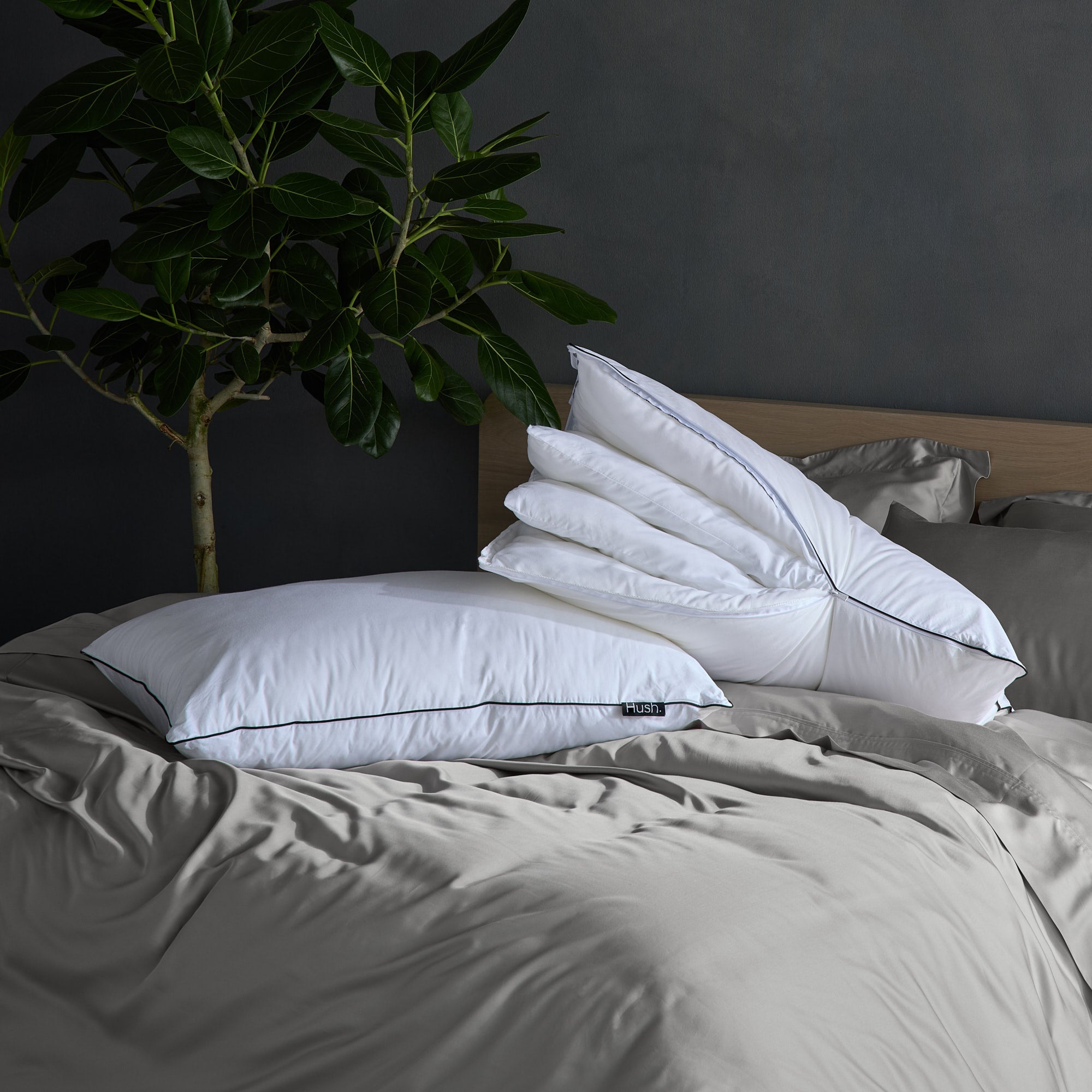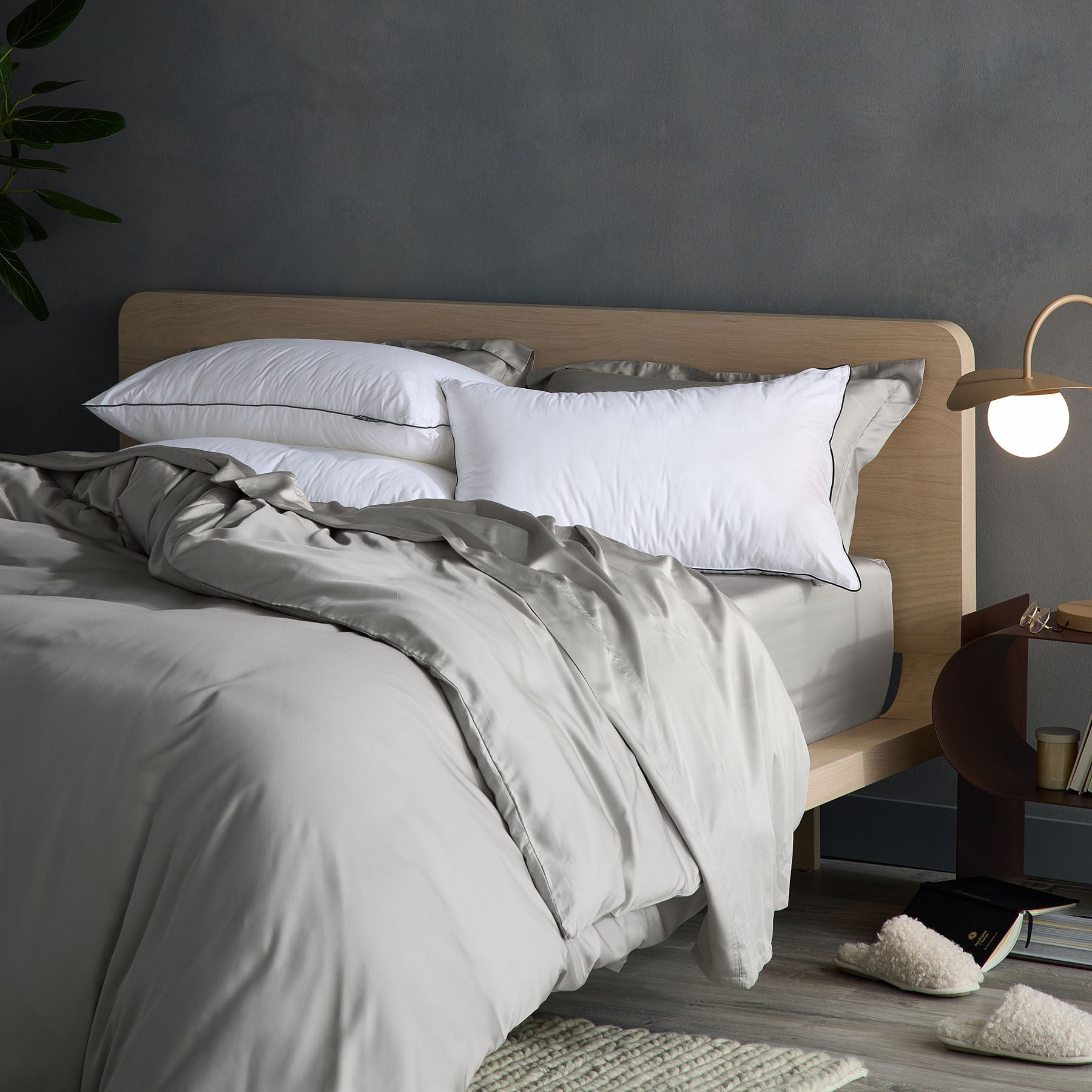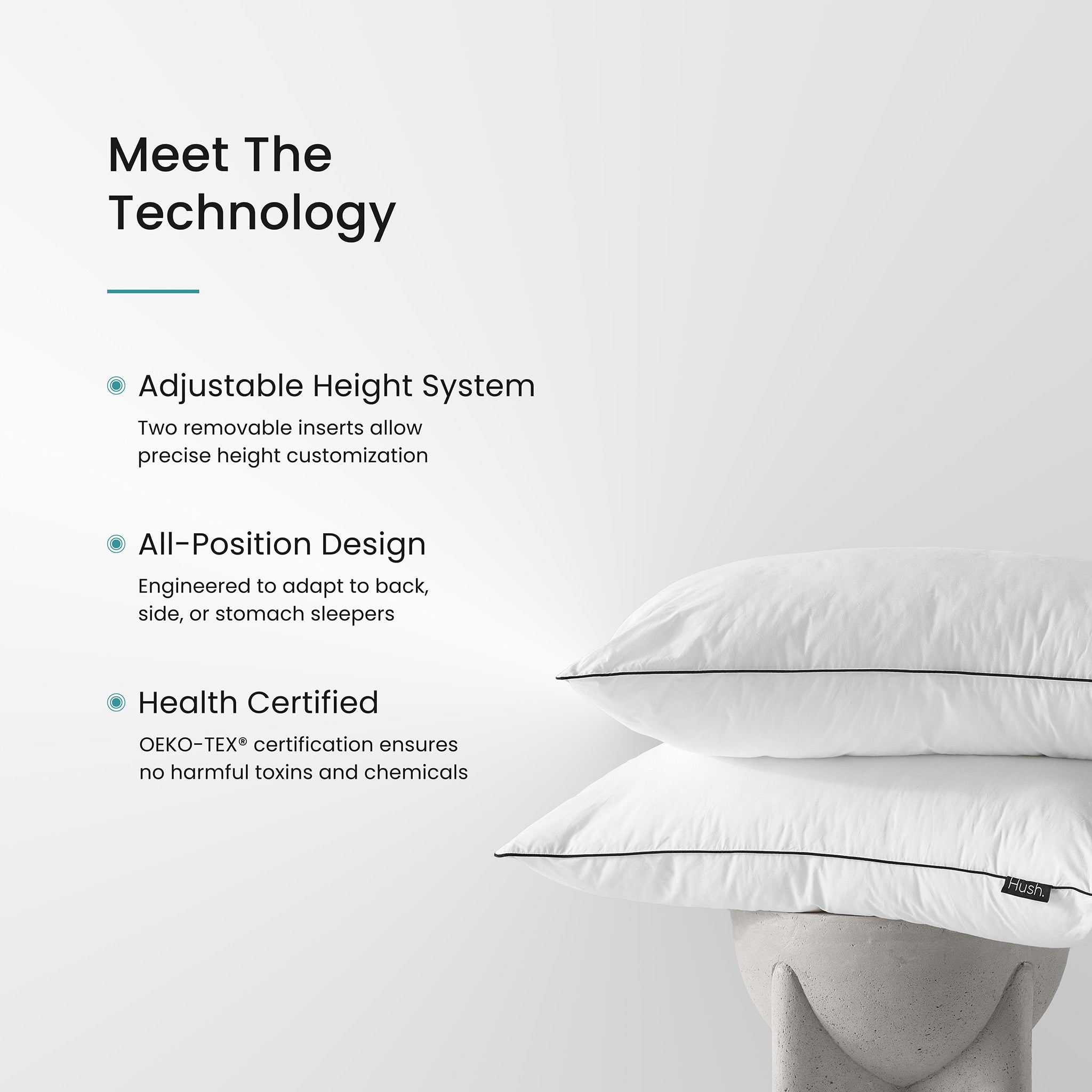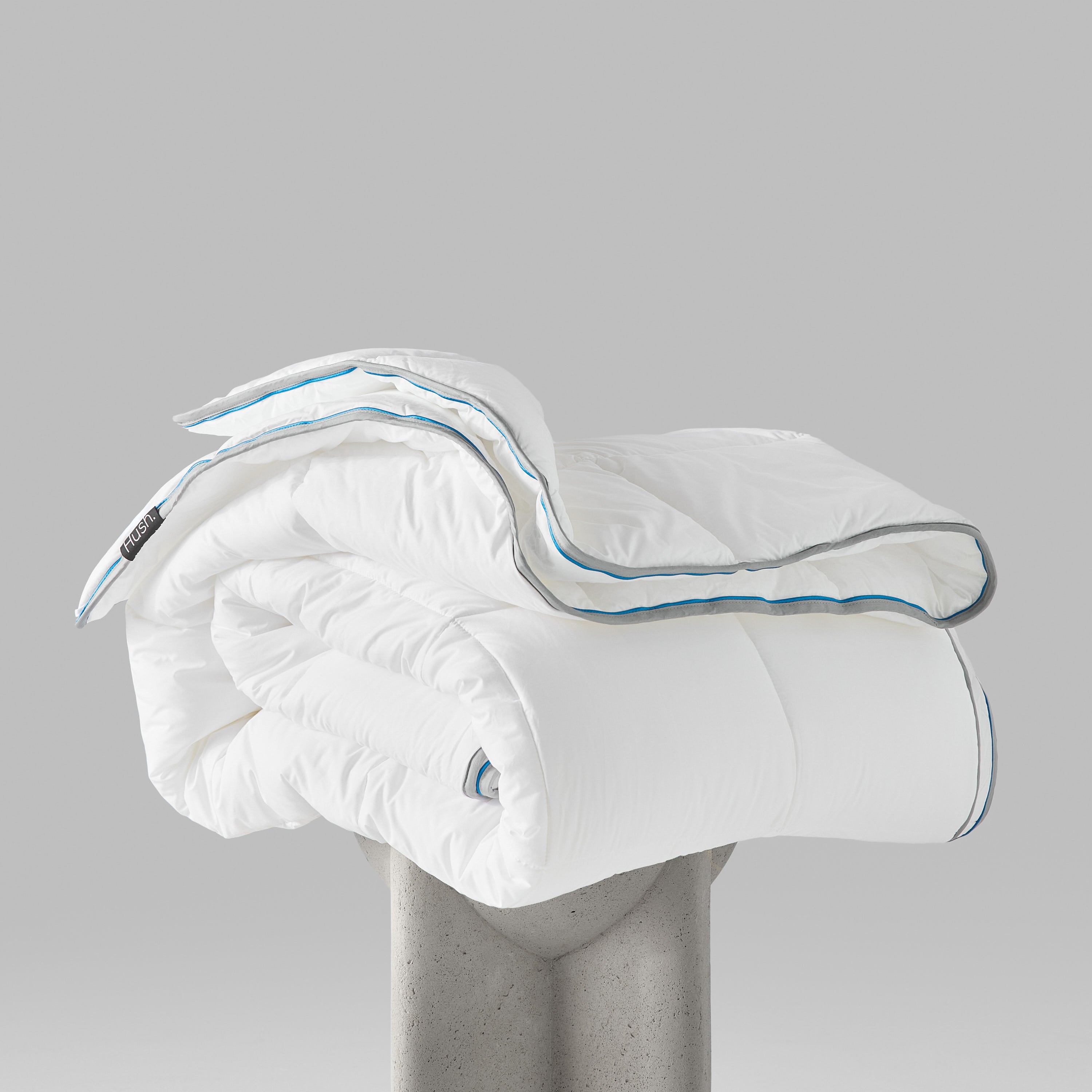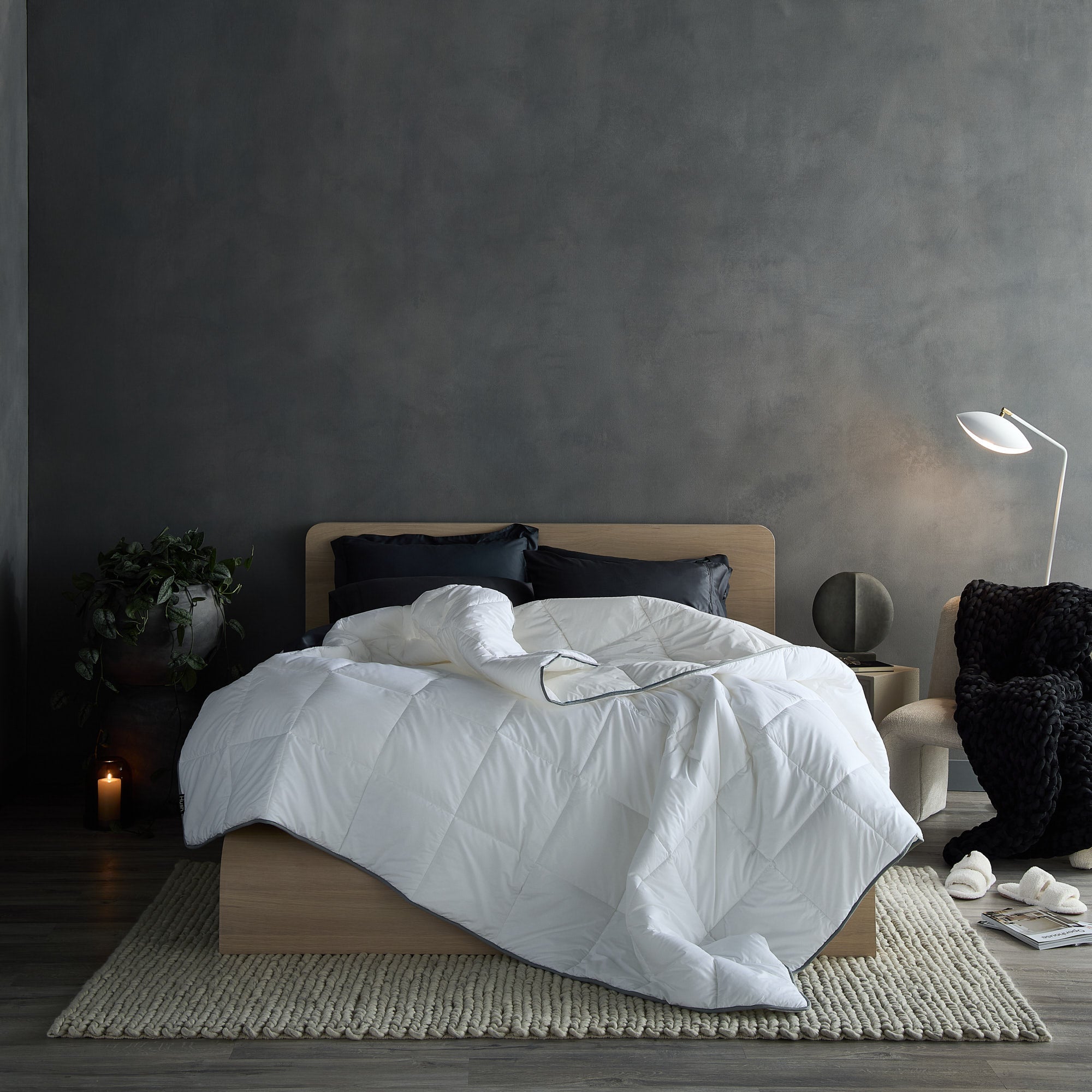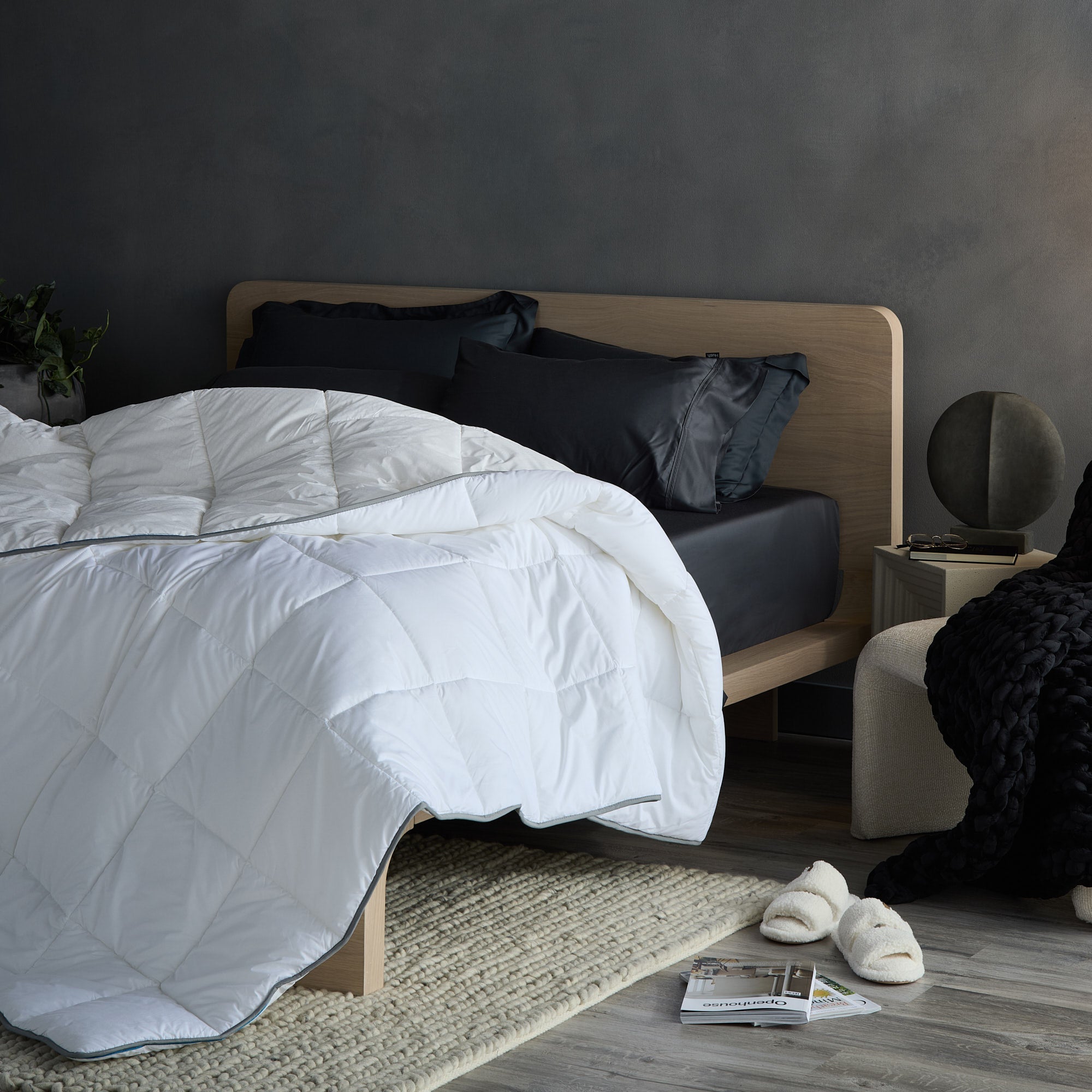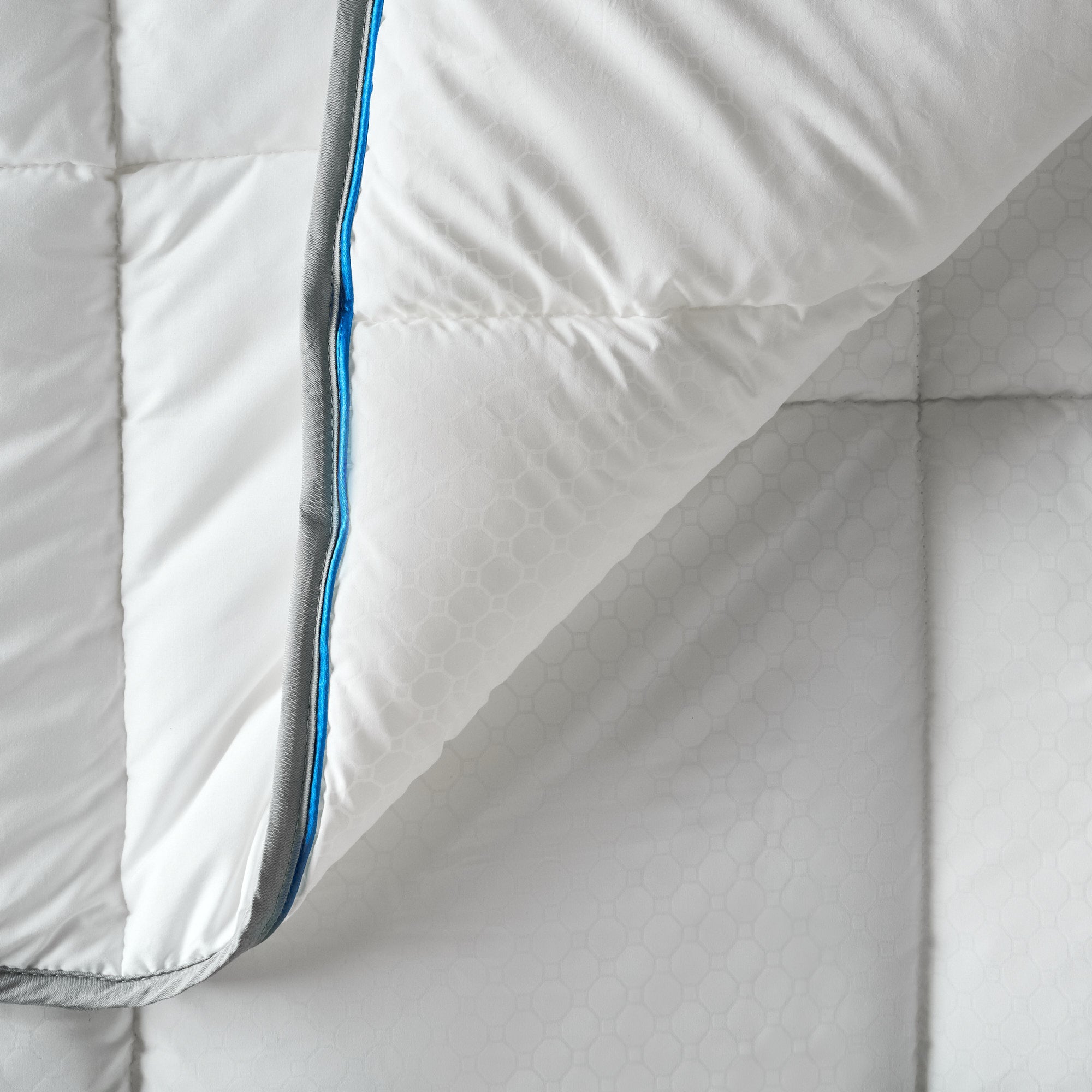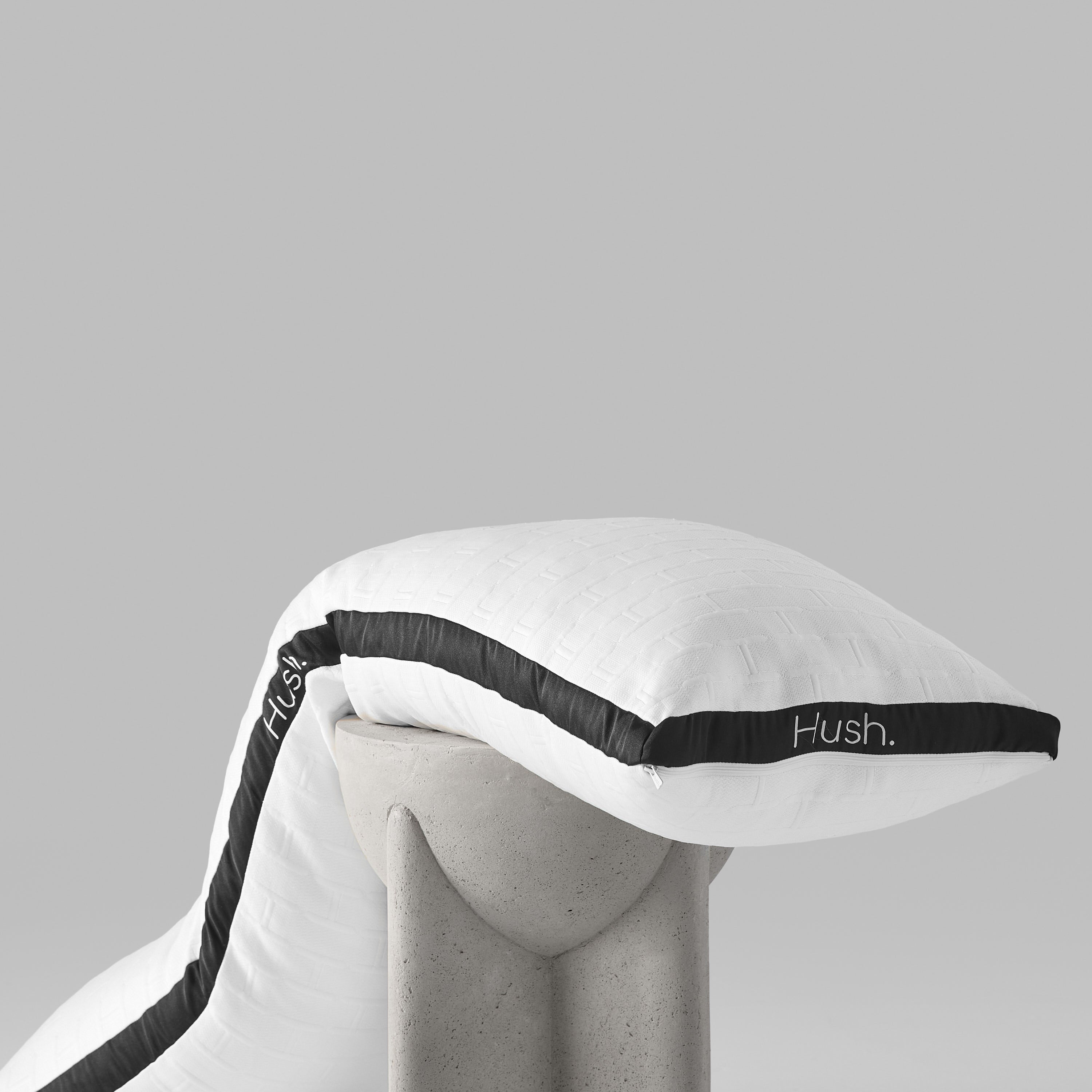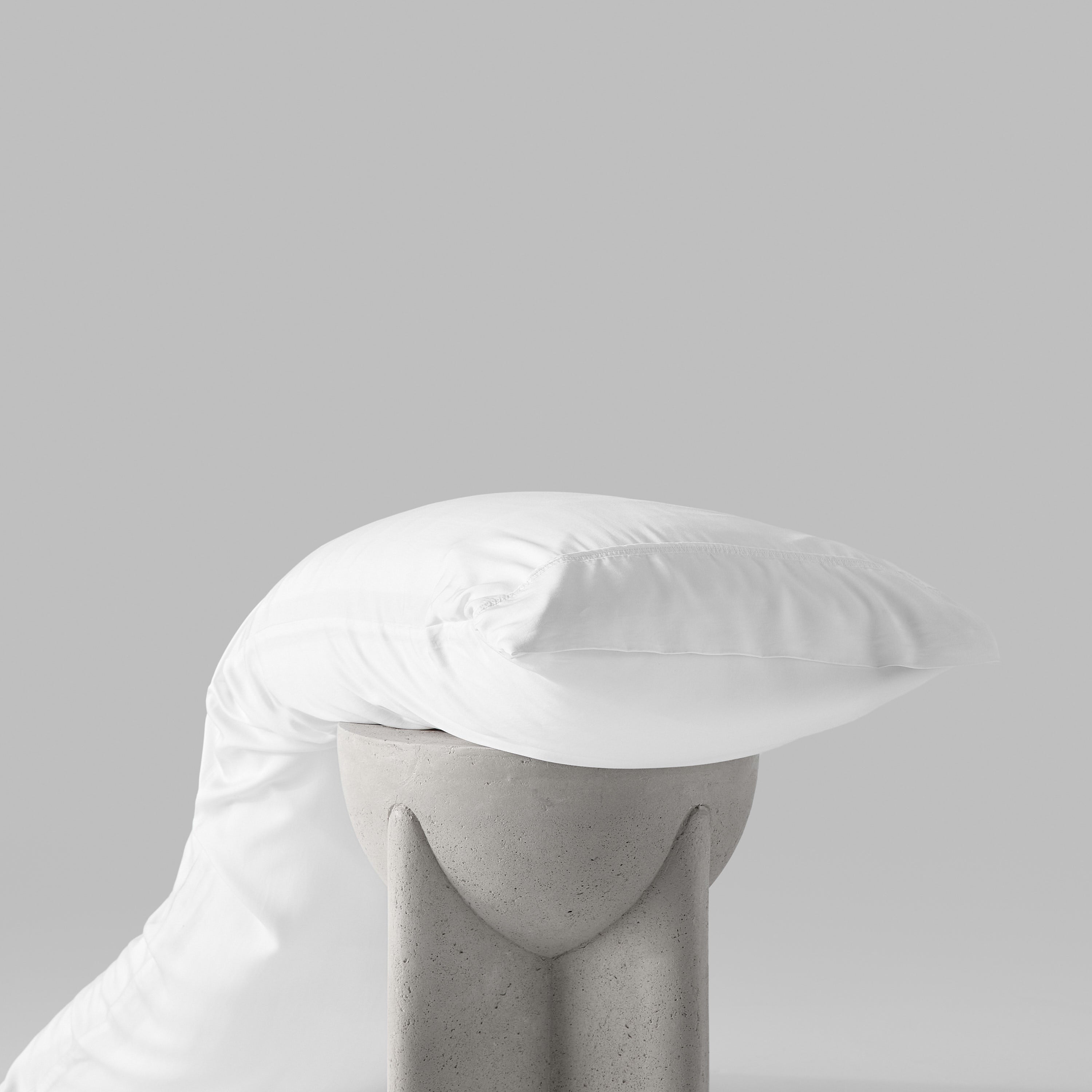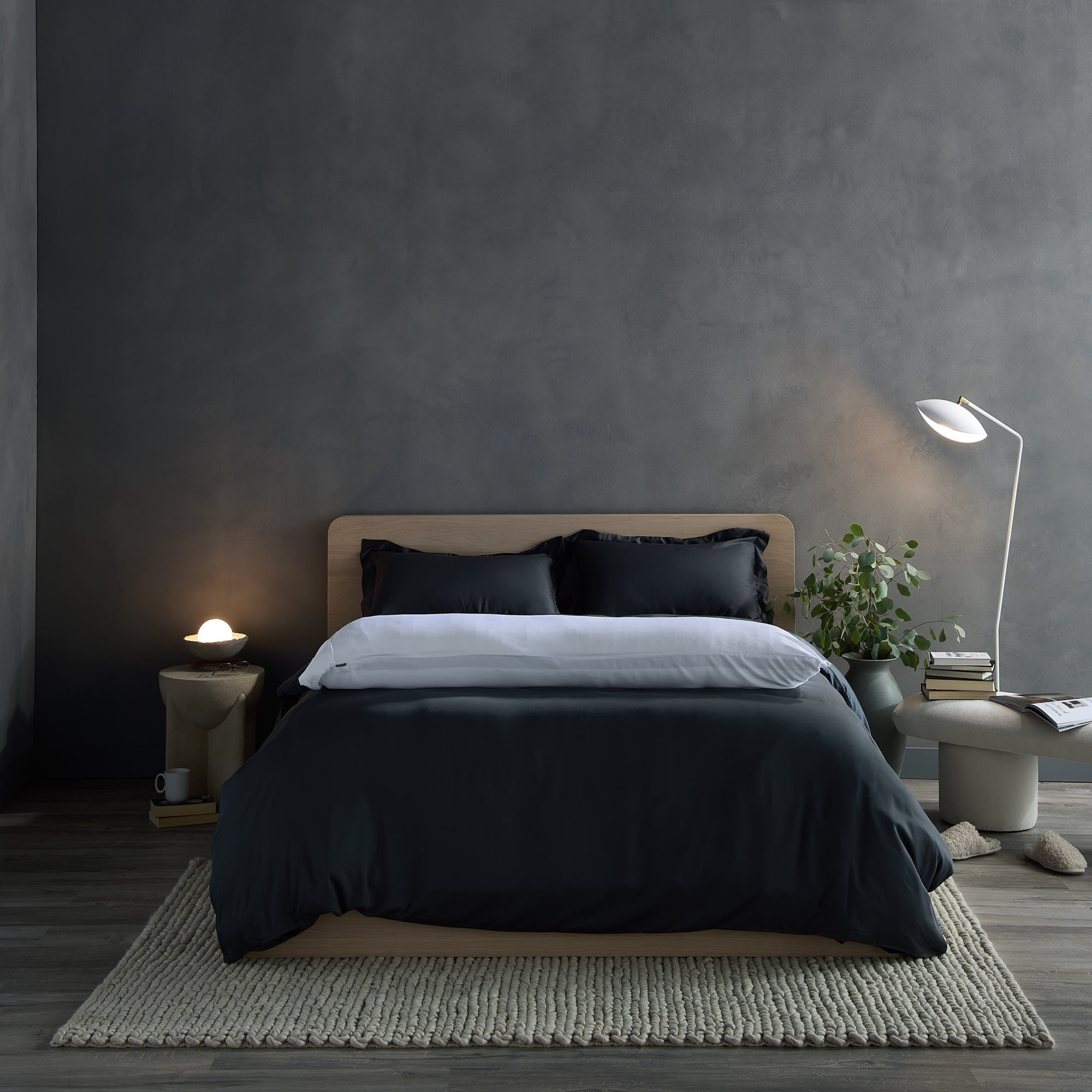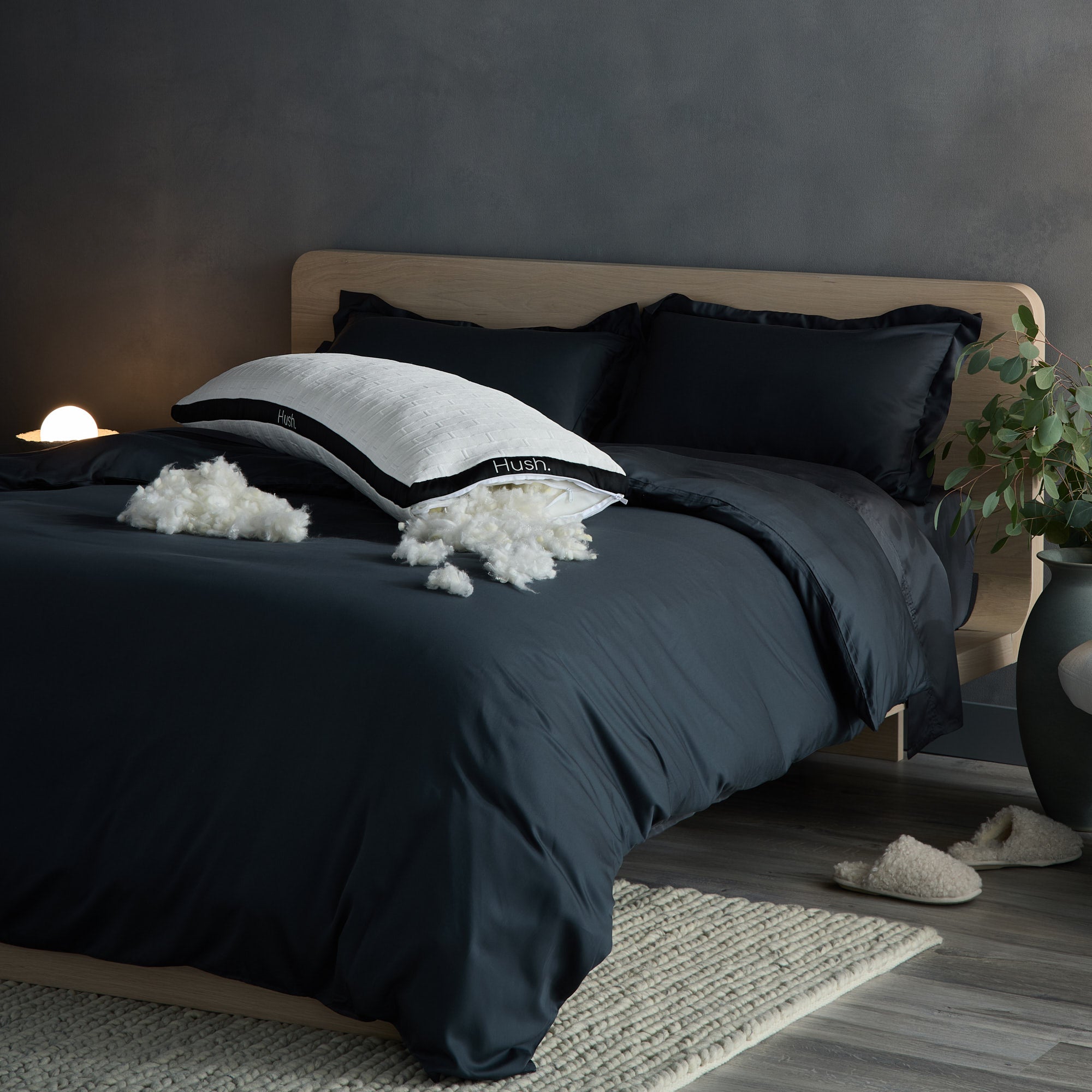
Falling asleep quickly is one thing, but this doesn’t matter if you often wake up in the middle of the night — especially if you have trouble getting back to sleep again. For many people, figuring out how to stay asleep at night will make all the difference in their sleep quality and overall well-being.
Waking up in the middle of the night isn't just a problem for parents with newborns. As it turns out, many potential sleep problems can keep you from staying asleep. Interrupted sleep keeps you from getting the deep sleep your body needs to fully recharge, leaving you exhausted and putting you at greater risk of a variety of health issues.
In this article, we'll take a look at the issues and sleep disorders keeping you from getting quality sleep as well as the solutions that will allow you to enjoy more restful sleep.
Why Do You Keep Waking Up in the Middle of the Night?

Understanding the underlying issues that can cause you to wake up during the night is essential for figuring out how to stay asleep. Here are some common causes of interrupted sleep:
Stress
Stress doesn't just ruin your day — it also messes with your sleep-wake cycle. In fact, the National Sleep Foundation reports that stress is a leading contributor to insomnia. Whether the stress results from problems at work, a divorce, the death of a loved one, or other life changes, it can make it harder to fall asleep and stay asleep. This is because acute stress increases blood pressure and causes your muscles to tense up. When you’re stressed, your body also produces adrenaline and cortisol, making it feel more awake. Poor sleep quality will worsen stress and other mental health challenges.
Physical Health Concerns
Physical health problems can also cause you to wake up during the night, in part because many of these conditions seem to worsen at night. Chronic pain — particularly when caused by arthritis or cancer — will often interrupt sleep. Digestive problems like acid reflux also tend to get worse at night when you are lying down.
Breathing disorders like asthma and bronchitis, hormonal imbalances, and even nerve diseases like Parkinson's could also interfere with the quality of your sleep. It is also worth noting that interrupted sleep is a side effect of many medications used to treat such conditions. Whether your poor sleep is caused by back pain, digestive disorders, or medication, meet with a doctor to help you discover the issue.
Poor Sleep Hygiene
People who wonder how to stay asleep often benefit from looking at their sleep routine. Your bedtime routine can have a direct influence on your ability to sleep soundly through the night.
For example, eating heavy meals before bed can cause you to wake up later as your body tries to digest. This can be even worse if you drink alcohol before bed. As a depressant, alcohol may help you fall asleep quickly, but your sleep quality suffers because it interferes with REM sleep and often results in nighttime awakenings. This includes those extra midnight trips to the bathroom because you drank too much.
Inconsistent sleep patterns can also cause you to wake up in the middle of the night. For example, napping in the late afternoon will throw off your body's circadian rhythm, making you more likely to experience periods of wakefulness in the middle of the night. This is why many people experience jet lag while traveling — they are off their normal sleep schedule.
Sleep Disorders
Disorders such as sleep apnea and insomnia can keep you from getting the healthy sleep you need.
Sleep apnea results in frequent nighttime awakenings as the breathing passages close off. This causes the individual to wake up gasping for breath before falling back asleep. These interruptions can occur dozens of times per hour, but despite this, most cases of sleep apnea are undiagnosed. In addition to daytime sleepiness, people with this disorder often snore loudly during the night. Older and overweight individuals are also more at risk.
Insomnia doesn't just make it harder to fall asleep. This disorder affects up to 30 percent of the population and often causes individuals to wake up in the middle of the night. Those with long-lasting insomnia should consult with a sleep specialist.
How to Achieve Uninterrupted Sleep

While over-the-counter sleeping pills can help improve your sleep quality, they don't need to be your first option when trying to figure out how to stay asleep. Quite often, healthy lifestyle changes can help you sleep through the night.
- Improve your sleep environment. Making changes to your sleep environment will reduce interruptions that wake you up during the night. For example, a white noise machine or earplugs can drown out the sound of your roommates stumbling home at two in the morning. Blackout curtains or a face mask will block unwanted light sources. Be sure to put away your smartphone, too — blue light exposure before bed makes it harder to fall asleep and stay asleep.
- Sleep with a weighted blanket. Weighted blankets are a great answer to how to stay asleep. Studies have found that weighted blankets improve sleep time while also reducing movement during sleep. A weighted blanket will apply gentle pressure that helps your body relax. This reassuring feeling helps you calm down so your body can produce serotonin and melatonin.
- Drink fewer fluids before bed. While caffeine and alcohol are obvious bedtime no-no's, avoid all fluids before bedtime. After all, waking up to go to the bathroom is one of the most common reasons for interrupted sleep. Avoid drinking anything an hour before bed, and make one last trip to the porcelain palace before you go to bed.
- Exercise early in the day. Exercising during the day has consistently been linked with improved sleep quality — so even if you hate running, it's worth going for a jog. Sleep experts recommend that you exercise earlier in the day (typically at least five hours before bedtime) so you can fall asleep fast and stay asleep.
- Know what to do when you wake up in the middle of the night. Staring at your alarm clock and watching the minutes tick by won’t help you fall back asleep. That will just make you more stressed out. If you don't fall back asleep after 15 minutes, get out of bed and do something calming, like stretching or reading. This will help you mentally reset for when you get back in bed.
Improve Your Sleep Hygiene With Hush Blankets

If insomnia, restless legs syndrome, or other sleep disorders are keeping you from getting the hours of sleep you need, check out Hush Blankets. Our weighted blankets use deep touch pressure therapy to provide a soothing "hug" that helps you fall asleep and stay asleep.
Our blankets will ensure you get a good night's sleep, free of interruptions, so you can feel rested and refreshed the next day. When you improve your sleep, you improve your entire quality of life.
Try one of our blankets today — each is backed by a 100-night better sleep guarantee — so you can start sleeping through the night.
